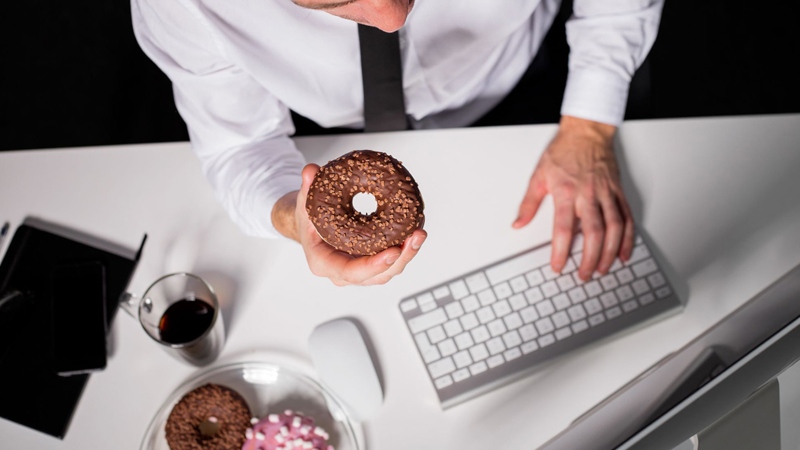In today’s fast-paced world of work, maintaining high levels of productivity is a constant challenge. While factors like workload, time management, and stress play an important role, an often overlooked factor that leads to lower productivity can be a person’s late-night snacking habits. Recent research has discovered a surprising link between unhealthy eating at night and its impact on performance the next day.
The Unveiling of a Surprising Connection
The study of 97 full-time employees sheds new light on the consequences of unhealthy late-night snacking. As defined by the study, unhealthy eating includes eating junk food, exceeding the recommended amount, and overeating late at night. The researchers found a significant link between these eating habits and disruptions in work performance and the following day’s “helpful behaviors.” This implies that late-night snacking can lead to feelings of distraction from tasks, as well as a decreased willingness to help colleagues or participate in collaborative efforts.
The Toll of Unhealthy Indulgence
The potential explanations behind this drop in productivity observed after a night of unhealthy snacking have two parts: mentally and physically exhausted. Indulging in junk food and overeating can lead to discomforts like headaches, upset stomach, and even digestive problems like diarrhea. These physical symptoms and guilt associated with unhealthy choices contribute to mental fatigue. The result is a compromised state of consciousness that interferes with concentration, decision-making, and overall work performance.
Nourishing the Brain: The Role of Healthy Eating
The link between nutrition and cognitive function is a concept that has been introduced previously. The results of the study underscore the importance of good brain function, which is intrinsically related to the quality of our diet. Nutrient-rich foods provide the foundation for neurotransmission and cognition, helping us focus, stay alert, and pay attention. Conversely, a diet high in sugar and unhealthy fats can lead to low energy and mood swings, which adversely affect productivity.
Looking Beyond: Unraveling the Culprits
While the study highlights the broad correlation between an unhealthy diet and reduced performance, the researchers are eager to explore the deeper nuances. Specifically, they aimed to determine whether specific factors of late-night snacking, such as sugar or caffeine content, played a central role in these behavioral outcomes. The researchers hope to provide personalized recommendations to improve food choices and work productivity by identifying the main culprits.
Making Informed Choices
The undeniable link between late-night snacking and productivity makes informed food choices imperative. Instead of reaching for bags of chips or sugary sweets, choose healthier alternatives. Snacks rich in protein, fiber, and healthy fats can sustain energy levels without the later problems associated with junk food. Incorporating fruits, vegetables, nuts, and whole grains into your late-night snacking routine can support brain health and stay productive in the long run.
Practical Strategies for Enhanced Productivity
- Mindful Snacking: Practice mindfulness when snacking. Be aware of your hunger cues and choose nutritious options that will provide sustained energy.
- Preparation is Key: Have healthy snacks available to limit the temptation to choose unhealthy foods.
- Hydration: Stay hydrated throughout the day and into the evening. Sometimes what looks like hunger can actually be thirst.
- Balanced Meals: Make sure your main meals are well-balanced, providing a healthy mix of carbohydrates, proteins, and fats.
- Cutting Down Gradually: If you regularly eat late-night snacks that are not healthy, try cutting them down gradually to kick the habit.


